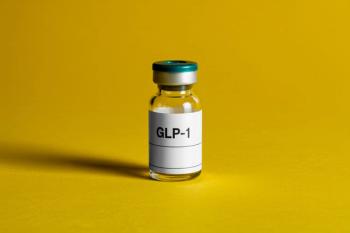
- Psychiatric Times Vol 24 No 13
- Volume 24
- Issue 13
Assessment of Decisional Capacity
Voluntary informed consent is, with rare exceptions, a necessary, albeit not sufficient, defining precondition of ethical clinical treatment, and it is essential for enrollment in clinical research trials.
Voluntary informed consent is, with rare exceptions, a necessary, albeit not sufficient, defining precondition of ethical clinical treatment, and it is essential for enrollment in clinical research trials. The validity of an individual's consent is contingent not only on it being given in a voluntary context and with full disclosure of all relevant information (in language intelligible to the recipient) but also on the consenting person having sufficient mental capacity to make a meaningful decision.1,2
Explicit and systematic evaluation of decisional capacity is often thought of in the context of legal competency proceedings, such as when a patient with questionable decisional capacity refuses an intervention that others think necessary to his or her safety and well- being. Whether or not the treating clinician decides to conduct a systematic or explicit assessment of the patient's decisional capacity, he or she nevertheless has an ethical responsibility to ensure that the patient who agrees to a recommended intervention actually has sufficient capacity to understand what will be involved in the treatment.1,2
There are few guidelines that specify when explicit assessment and documentation of an individual's consent capacity is needed. However, such assessment and documentation may be particularly prudent when the individual consents to complex or high-risk interventions, when there are multiple viable treatment options with different or complex risk-benefit profiles, and/or when the patient has marked cognitive deficits or other risk factors for impaired decisional capacity.3,4
Decisional capacity
As detailed in the model put forth in 2 studies by Appelbaum and colleagues,5,6 decision-making capacity is generally defined by 4 functional tasks:
- Understanding information as it relates to the choice, such as the nature, purpose, and potential risks and benefits of the proposed treatment as well as alternatives.
- Appreciation of the relevance of that information for one's condition or situation (such as recognition that one has a condition for which effective treatment could be potentially helpful).
- The ability to consider and compare (and reason about) potential consequences of the various viable options (including no treatment).
- The ability to communicate (express) a choice.
These abilities are all framed in reference to a specific decision. The ethically relevant question is not the patient's general (typical) capacity for making decisions, but rather his capacity to make the particular decision at hand.
This 4-component model of decisional capacity was developed, in part, from consideration of the abilities deemed through case law as relevant to establishing competency.5,7,8 However, decisional capacity and competence are not synonymous, the former is a clinical construct and the latter is a legal term. Although courts generally give weight to the evidence an examining clinician provides regarding a patient's decisional capacity, the ultimate determination of competence is made by the court, not by a physician or other clinician.9 In contrast, the treating clinician retains ethical responsibility for ensuring that the patient has the capacity to consent to the treatment(s).
Instruments for assessing decisional capacity
Unaided by structured methods, there tends to be low interrater reliability among clinician judgments of decisional capacity.10,11 Fortunately, interrater reliability can be improved with specific guidance on the standards for decisional capacity,12 and a number of structured or semistructured instruments have been developed to assist clinicians to systematically evaluate their patients' decisional capacity relative to such standards.13-15
In a recent comprehensive review we identified 15 published questionnaires or instruments that assess capacity to consent to treatment (as well as 10 instruments for assessing capacity to consent to research).13 Nine of the 15 treatment consent capacity measures provide for assessment of all 4 dimensions of decisional capacity, and evidence of at least adequate interrater reliability (= 0.80) was available for 7 of these 9 measures (Table).13
One primary methodological distinction among capacity assessment instruments is whether patients' decisional capacity is evaluated in reference to an actual treatment option or in reference to hypothetical vignettes. Of the 7 measures, 4 use hypothetical vignettes, whereas the other 3 evaluate a patient's response to actual diagnosis and proposed treatment(s).
The instruments that use hypothetical vignettes have the advantage of standardized methods and facilitate comparison of responses and scores across patients and settings, thus they tend to be ideal for empirical studies of decisional capacity. However, in a clinical context, their predictive validity and generalizability is less clear. On the other hand, tailoring content to the individual's actual choice clearly increases the ecological validity of the assessment but complicates comparison of results from different treatment scenarios. Because the specific information to be understood, appreciated, or reasoned about is variable, the degree to which supporting data on the reliability and validity of the instrument tailored for one treatment scenario generalizes to other decisions is often unclear.
In addition, clinicians who use these instruments should keep in mind the specific item content. Although there appears to be good inter-instrument consistency in the understanding component of decisional capacity, subjective as well as empirical comparison of the subscales from various instruments suggests some discrepancies in the appreciation and reasoning components.23-25
A persistent methodological challenge in establishing the criterion or predictive validity of decisional capacity instruments is the lack of a gold standard against which the current measures can be evaluated. In lieu of an ideal criterion, validity data for these instruments have taken a range of forms, including agreement with expert or other stakeholder judgments, ability to discriminate between cognitively impaired persons and neurologically healthy individuals, and the degree of correlation or agreement with other capacity instruments and/or neuropsychological measures. (Dunn and colleagues13 provide detailed tables summarizing format content, administration time, and psychometric properties for each published instrument.)
Implementing assessment into clinical practice
Many of the best instruments for assessing capacity to consent to treatment routinely require 20 minutes or more to administer. Given the time constraints placed on many clinicians, routine use of such instruments with every patient may not be a viable option. However, the decision whether to incorporate such instruments into everyday practice need not be viewed as a dichotomous choice but rather as a graded series of options.
At the most basic level, some assessment of patient comprehension can and should be included in nearly every consent discussion with the patient. Incorporating a few basic queries into the initial information disclosure and discussion can be invaluable in identifying and quickly rectifying any initial patient miscomprehension.26,27 For instance, patients can routinely be asked to explain in their own words what they understand about the nature, purpose, risks, and alternatives to the proposed treatment. Ideally, the content of the initial and scoring criteria for such questions can themselves be standardized.26 Based on the response to such initial inqui-ries, the need for more comprehensive assessment may become apparent. Patients with marked cognitive impairments may warrant use of more comprehensive assessments before treatments are prescribed for which there is a likelihood of harm from errant decisions.
The need to explicitly assess and document capacity to consent to treatment for patients may arise even more frequently or saliently in geriatric psychiatry settings. Specifically, concern about decisional capacity may be due to a variety of factors, such as:
- Normal age-related changes in cog-nitive functioning.
- Neurocognitive deficits that are associated with some neuropsychiatric conditions.
- Increased prevalence of neurodegenerative conditions among older persons.
Moreover, because of increased physical frailty and vulnerability to medication side effects, along with increased rates of medical comorbidity and polypharmacy, patients in geriatric psychiatry clinics may face mulifaceted treatment regimens, and thus, complex risk-to-benefit profiles. Empirical data clearly demonstrate that it would be inappropriate to assume either the presence or the absence of decisional capacity solely on the basis of age, diagnosis, or similar risk factors. That is, decisional capacity is appropriately evaluated on a person-by-person (and decision-by-decision) basis. But consideration of risk factors can be helpful in deciding when routine use of more comprehensive assessments may be warranted.
Once the decision to use a capacity instrument has been reached, one is still faced with the dilemma of choosing among the various available instruments. Based on the degree of empirical support, its adaptability to a variety of situations, and the availability of a comprehensive published manual and other training materials for administration and scoring, our research group recently recommended the MacArthur Competency Assessment Tool for Treatment as the best generic choice.13 However, we also acknowledged that none of the instruments are perfect, and there are situations in which another instrument may be a better choice. (For detailed discussion and recommendations, please see the report by Dunn and colleagues.13) Few of the instruments provide definitive "cut-scores," and the ultimate determination of whether a patient has sufficient capacity to consent still depends on professional judgment.28,29
Even when an individual is found to lack sufficient capacity to make a particular decision, additional assessment may be helpful in clarifying the nature of his decision-making difficulty. Although neuropsychological tests do not provide a direct measure of capacity to make a specific choice, consideration of the overall pattern of a person's neuropsychological strengths and weaknesses can be helpful in understanding the neurophysiological source of any cognitive deficits as well as in understanding which specific information processing abilities are suboptimal.30 Such information can be exceptionally helpful in developing compensatory strategies, including enhanced consent procedures.31
References:
1. National Commission for the Protection of Human Subjects of Biomedical and Behavioral Research. The Belmont Report: Ethical Principles and Guidelines for the Protection of Human Subjects of Research. 1979. Available at: www.hhs.gov/ohrp/humansubjects/guidance/ belmont.htm. Accessed September 28, 2007.
2. President's Commission for the Protection of Human Subjects of Biomedical and Behavioral Research. Making Healthcare Decisions: A Report on the Ethical and Legal Implications of Informed Consent in the Patient-Practitioner Relationship. Vol 1: Report. Washington, DC; 1982.
3. Palmer BW. Informed consent for schizophrenia research: what is an investigator (or IRB) to do? Behav Sci Law. 2006;24:447-452.
4. Palmer BW, Savla GN. The association of specific neuropsychological deficits with capacity to consent to research or treatment. J Int Neuropsych Soc. 2007;13: 1047-1059.
5. Appelbaum PS, Grisso T. Assessing patients' capacities to consent to treatment. N Engl J Med. 1988;319: 1635-1638.
6. Appelbaum PS, Roth LH. Competency to consent to research: a psychiatric overview. Arch Gen Psychiatry. 1982;39:951-958.
7. Meisel A, Roth LH, Lidz CW. Toward a model of the legal doctrine of informed consent. Am J Psychiatry. 1977;134:285-289.
8. Roth LH, Meisel A, Lidz CW. Tests of competency to consent to treatment. Am J Psychiatry. 1977;134:279-284.
9. Signorelli DD, Mohaupt S. Informed consent and civil commitment in emergency psychiatry. Psychiatric Times. 2007;24(6):38, 40, 41.
10. Marson DC, McInturff B, Hawkins L, et al. Consistency of physician judgments of capacity to consent in mild Alzheimer's disease. J Am Geriatr Soc. 1997;45:453-457.
11. Shah A, Mukherjee S. Ascertaining capacity to consent: a survey of approaches used by psychiatrists. Med Sci Law. 2003;43:231-235.
12. Marson DC, Earnst KS, Jamil F, et al. Consistency of physicians' legal standard and personal judgments of competency in patients with Alzheimer's disease. J Am Geriatr Soc. 2000;48:911-918.
13. Dunn LB, Nowrangi M, Palmer BW, et al. Assessing capacity to consent to treatment and research: a review of instruments. Am J Psychiatry. 2006;163:1323-1334.
14. Moye J, Gurrera RJ, Karel MJ, et al. Empirical advances in the assessment of the capacity to consent to medical treatment: clinical implications and research needs. Clin Psychol Rev. 2006;26:1054-1077.
15. Sturman ED. The capacity to consent to treatment and research: a review of standardized assessment tools. Clin Psychol Rev. 2005;25:954-974.
16. Cea CD, Fisher CB. Health care decision-making by adults with mental retardation. Ment Retard. 2003;41: 78-87.
17. Bean G, Nishisato S, Rector NA, Glancy G. The psychometric properties of the Competency Interview Schedule. Can J Psychiatry. 1994;39:368-376.
18. Edelstein B. Hopemont Capacity Assessment Interview Manual and Scoring Guide. 1999.
19. Grisso T, Appelbaum PS, Hill-Fotouhi C. The MacCAT-T: a clinical tool to assess patients' capacities to make treatment decisions. Psychiatr Serv. 1997;48:1415-1419.
20. Grisso T, Appelbaum PS, Mulvey EP, Fletcher K. The MacArthur Treatment Competence Study. II: measures of abilities related to competence to consent to treatment. Law Hum Behav. 1995;19:127-148.
21. Tomoda A, Yasumiya R, Sumiyama T, et al. Validity and reliability of Structured Interview for Competency Incompetency Assessment Testing and Ranking Inventory. J Clin Psychol. 1997;53:443-450.
22. Marson DC, Ingram KK, Cody HA, Harrell LE. Assessing the competency of patients with Alzheimer's disease under different legal standards: a prototype instrument. Arch Neurol. 1995;52:949-954.
23. Moye J, Karel MJ, Azar AR, Gurrera RJ. Hopes and cautions for instrument-based evaluation of consent capacity: results of a construct validity study of three instruments. J Ethics Law Aging. 2004;10:39-61.
24. Moye J, Karel MJ, Azar AR, Gurrera RJ. Capacity to consent to treatment: empirical comparison of three instruments in older adults with and without dementia. Gerontologist. 2004;44:166-175.
25. Guerra RJ, Karel MJ, Azar AR, Moye J. Agreement between instruments for rating treatment decisional capacity. Am J Geriatr Psychiatry. 2007;15:168-173.
26. Jeste DV, Palmer BW, Appelbaum PS, et al. A new brief instrument for assessing decisional capacity for clinical research. Arch Gen Psychiatry. 2007;64:966-974.
27. Palmer BW, Dunn LB, Appelbaum PS, et al. Assessment of capacity to consent to research among older persons with schizophrenia, Alzheimer disease, or diabetes mellitus: comparison of a 3-item questionnaire with a comprehensive standardized capacity instrument. Arch Gen Psychiatry. 2005;62:726-733.
28. Grisso T, Appelbaum PS. Assessing Competence to Consent to Treatment: a Guide for Physicians and Other Health Professionals. New York: Oxford University Press; 1998.
29. Moye J, Marson DC. Assessment of decision-making capacity in older adults: an emerging area of practice and research. J Gerontol B Psychol Sci Soc Sci. 2007;62B: P3-P11.
30. Sullivan K. Neuropsychological assessment of mental capacity. Neuropsychol Rev. 2004;14:131-142.
31. Eyler LT, Jeste DV. Enhancing the informed consent process: a conceptual overview. Behav Sci Law. 2006; 24:553-568.
Articles in this issue
about 18 years ago
Methadone as an Analgesicover 18 years ago
LifeSkills Training Programs Combat Adolescent Delinquencyover 18 years ago
Obituaries in a Medical School Magazineover 18 years ago
Illinois to Implement New Mental Illness Treatment Lawover 18 years ago
Forensic Ethics and the Expert Witnessover 18 years ago
The Case for Adolescenceover 18 years ago
Gifts From Patients: Pragmatic Model Offers Guidanceover 18 years ago
Computer Gaming--When Virtual Violence Becomes RealNewsletter
Receive trusted psychiatric news, expert analysis, and clinical insights — subscribe today to support your practice and your patients.







